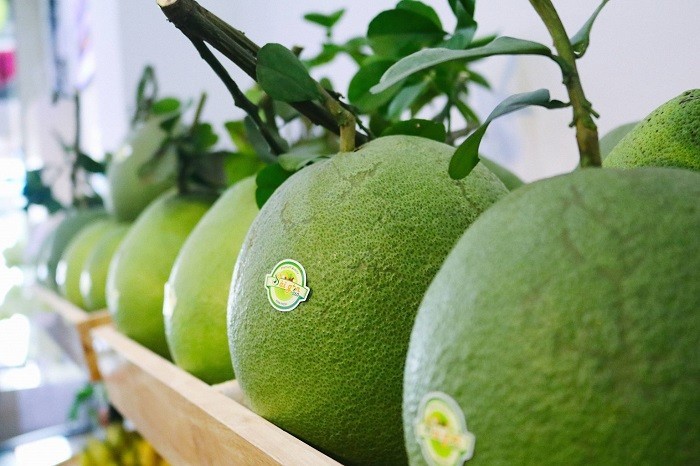
Ben Tre province to develop collective economy
Latest
 |
| Ben Tre has high-quality products such as green skin and pink flesh grapefruit and those made from coconut such as candy, jam, handicrafts, and cosmetics. (Photo: infonet) |
The province plans to develop 50 new cooperative groups and 15 new cooperatives this year, according to the provincial People’s Committee.
Under current regulations, the minimum number of required members for a cooperative group are three and seven for a cooperative.
The province plans to increase the average revenue of cooperatives to 2.1 billion VND (89,000 USD) this year from 1.2 billion VND (51,000 USD) last year.
It aims to develop 20 new products under the country’s “One Commune - One Product” (OCOP) programme for 20 cooperatives and upgrade the star level of seven existing OCOP products of cooperatives this year. OCOP products are rated from one to five stars.
Nguyen Minh Canh, Vice Chairman of the provincial People’s Committee, said the province will renovate the operation of the collective economy to improve its efficiency.
It will strengthen advocacy activities to enhance the awareness of officials, Party members and locals about the role and importance of the collective economy.
It will improve policies for developing human resources, soft loans, new technology, infrastructure, marketing and market information research for the collective economy and co-operatives.
It will boost linkages between co-operatives and companies to produce and consume products and services.
It will instruct agriculture co-operatives to change their mindset of merely producing to become part of an agricultural economy to enable them to sell their produce.
Phung Anh Thuc Doan, Vice Chairwoman of the provincial Cooperative Alliance, said the alliance will instruct cooperatives to set up efficient production plans.
The production plans will diversify services, focus on using new seed varieties that have high yield and quality, produce safe and clean products, and boost linkages among stakeholders in production and consumption, she said.
To increase value for agricultural products, the province has encouraged companies and cooperatives to invest in production facilities and machines to increase the rate of deep processing for agricultural products.
Develop more cooperatives
After the implementation of the 2012 Cooperative Law, the operation of cooperatives has been improved significantly and their operating models suit the production conditions of their members, according to the provincial People’s Committee.
The number of the province’s cooperatives has increased from 94 in 2013 to 179 last year. Of them, 140 operate in the agriculture and aquaculture sectors.
Many agriculture cooperatives have effectively supplied input materials for agricultural production and have linked with processing companies to secure outlets for farmers.
They have led in using good agricultural practices (GAP) or organic standards in growing crops, especially coconut.
The country’s largest coconut producing province has developed concentrated coconut growing areas in which cooperatives link with processing companies to grow the nut under organic standards.
It has 17,000ha of its 78,000ha of coconut planted to organic standards, according to its Department of Agriculture and Rural Development.
There are 79 cooperative groups and 58 cooperatives growing coconuts in the province. Of them, 32 cooperative groups and 28 cooperatives, which grow 5,600ha of coconuts and have 6,200 members, have linked with companies to develop value chains for their coconuts.
More agriculture cooperatives in Ben Tre have linked with companies to secure outlets and stable prices for their members.
Dinh Thuy Agriculture Cooperative in Mo Cay Nam district’s Dinh Thuy commune has a farm contract with a processing company to grow coconut to organic standards.
It has 500ha of coconut and 144ha of them are planted to organic standards under the farm contract.
Dang Truc Phuong, chairman of the cooperative, said the linkage to grow coconut under a value chain is a key for the cooperative’s members to become wealthy.
The cooperative gets an average revenue of 600 million VND (25,500 USD) a month, he said.
Tran Van Luong, a member of the cooperative, said: “Thanks to the cooperative having a farm contract with the company, my family’s 1ha coconut grove has stable outlet.”
He harvests about 1,200 coconuts which are purchased at a price of 5,000-12,000 VND per dozen, higher than market prices, he said.
Huynh Quang Duc, deputy director of the department, said the department has encouraged coconut farmers to join cooperative groups and cooperatives which link with companies to develop value chains for coconut and establish sustainable growing areas to meet export requirements.
The province is fostering growing coconut to organic standards and developing production codes for coconut growing areas for official export to China and other markets.





















